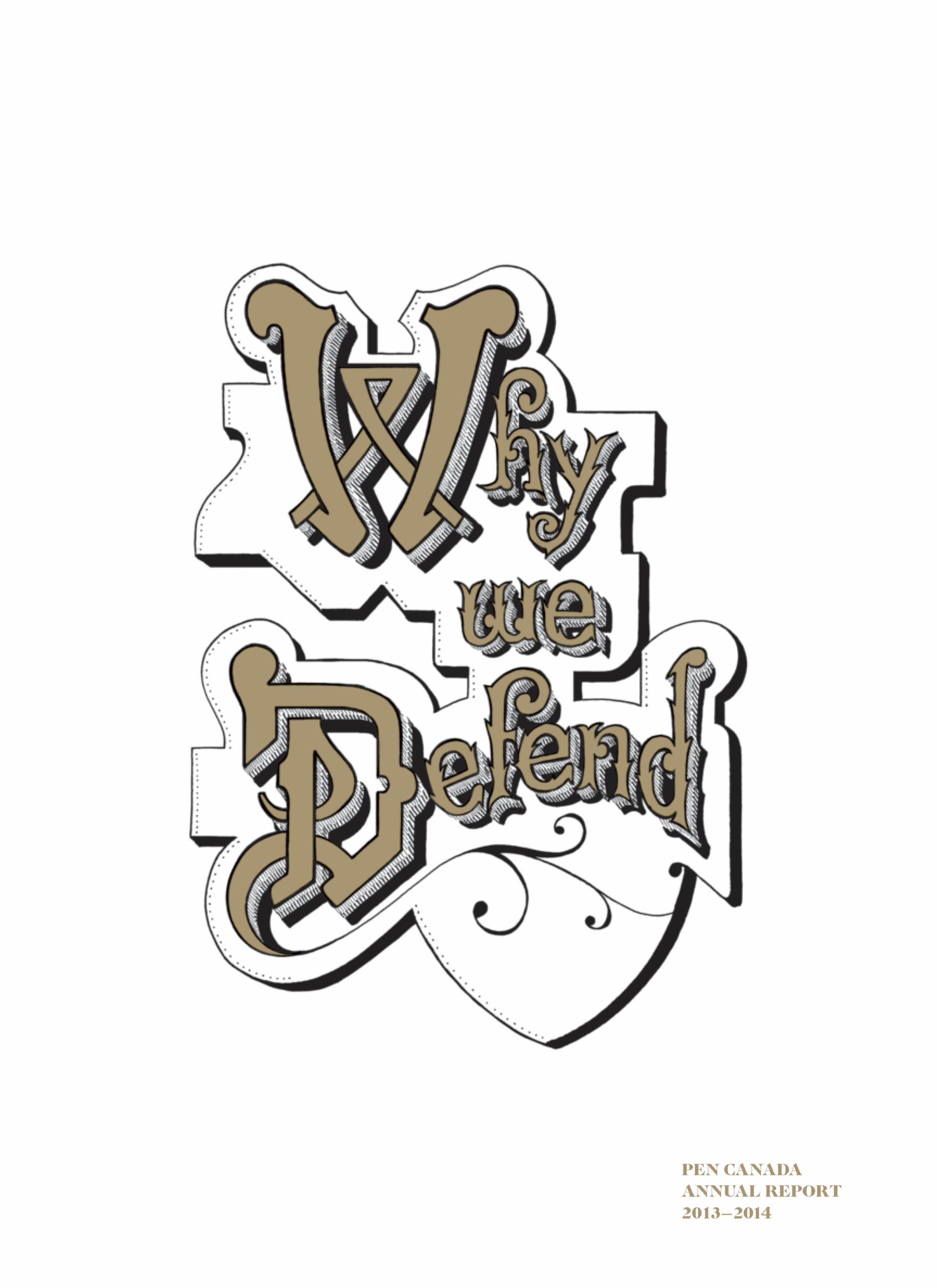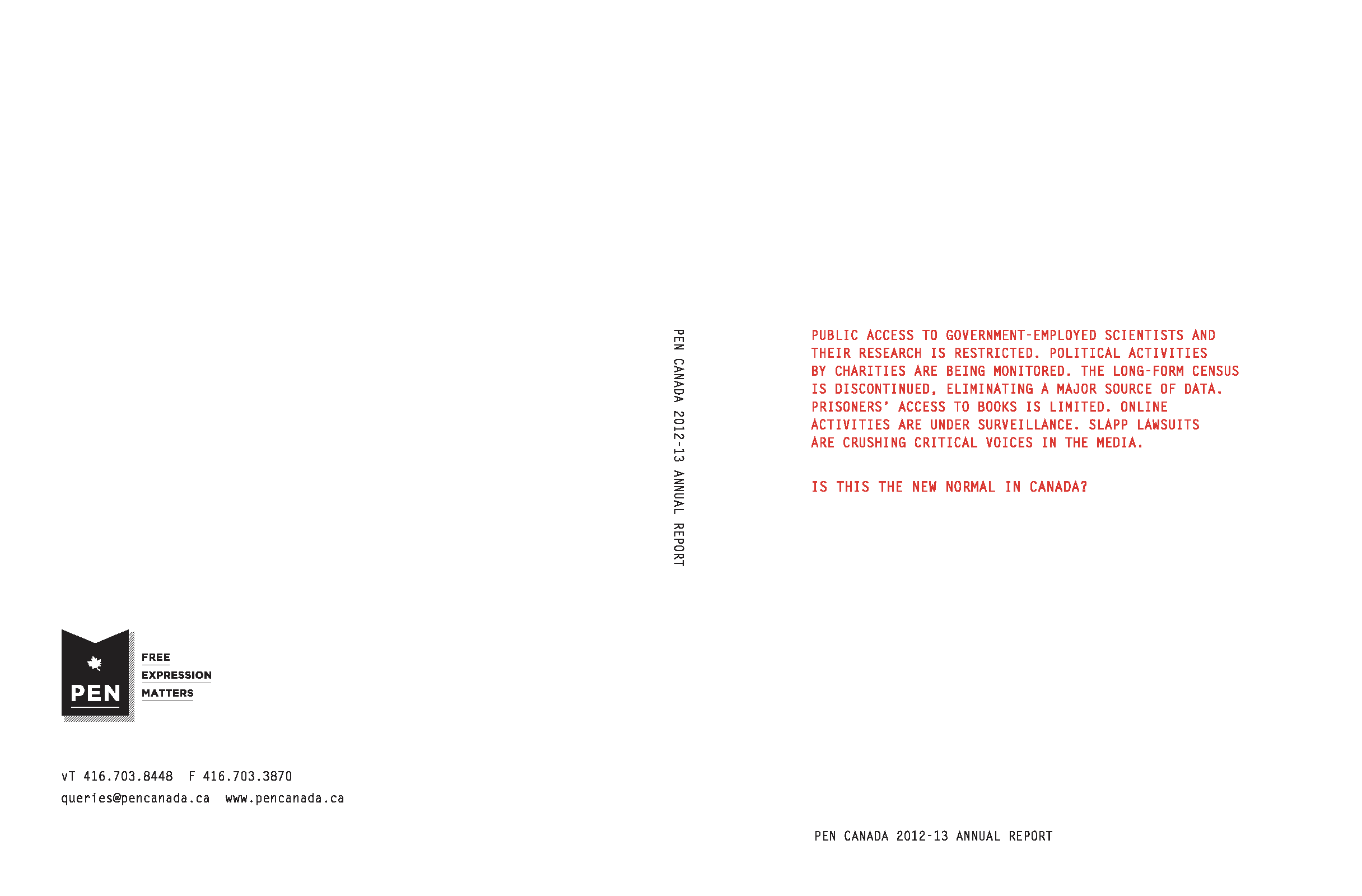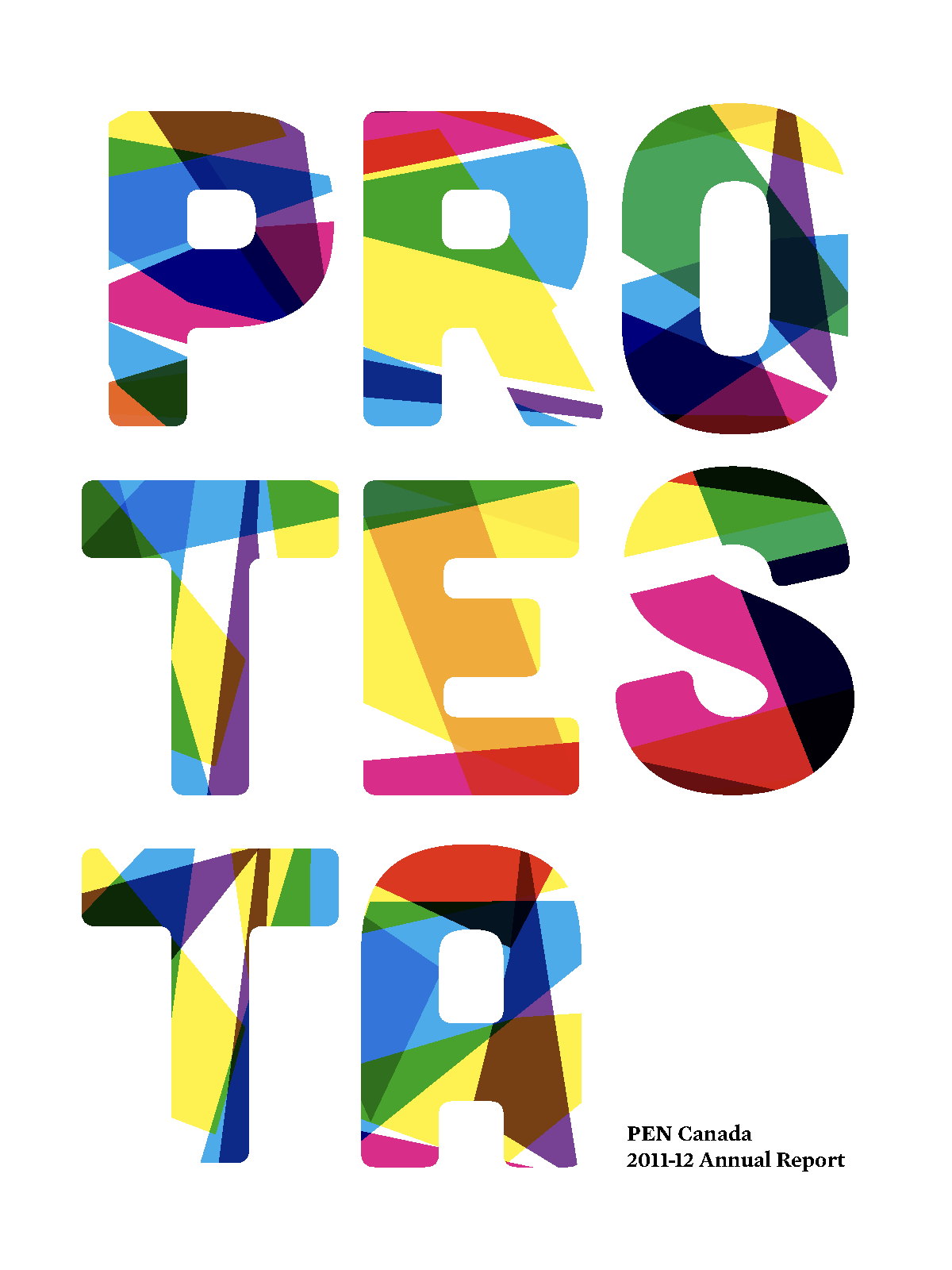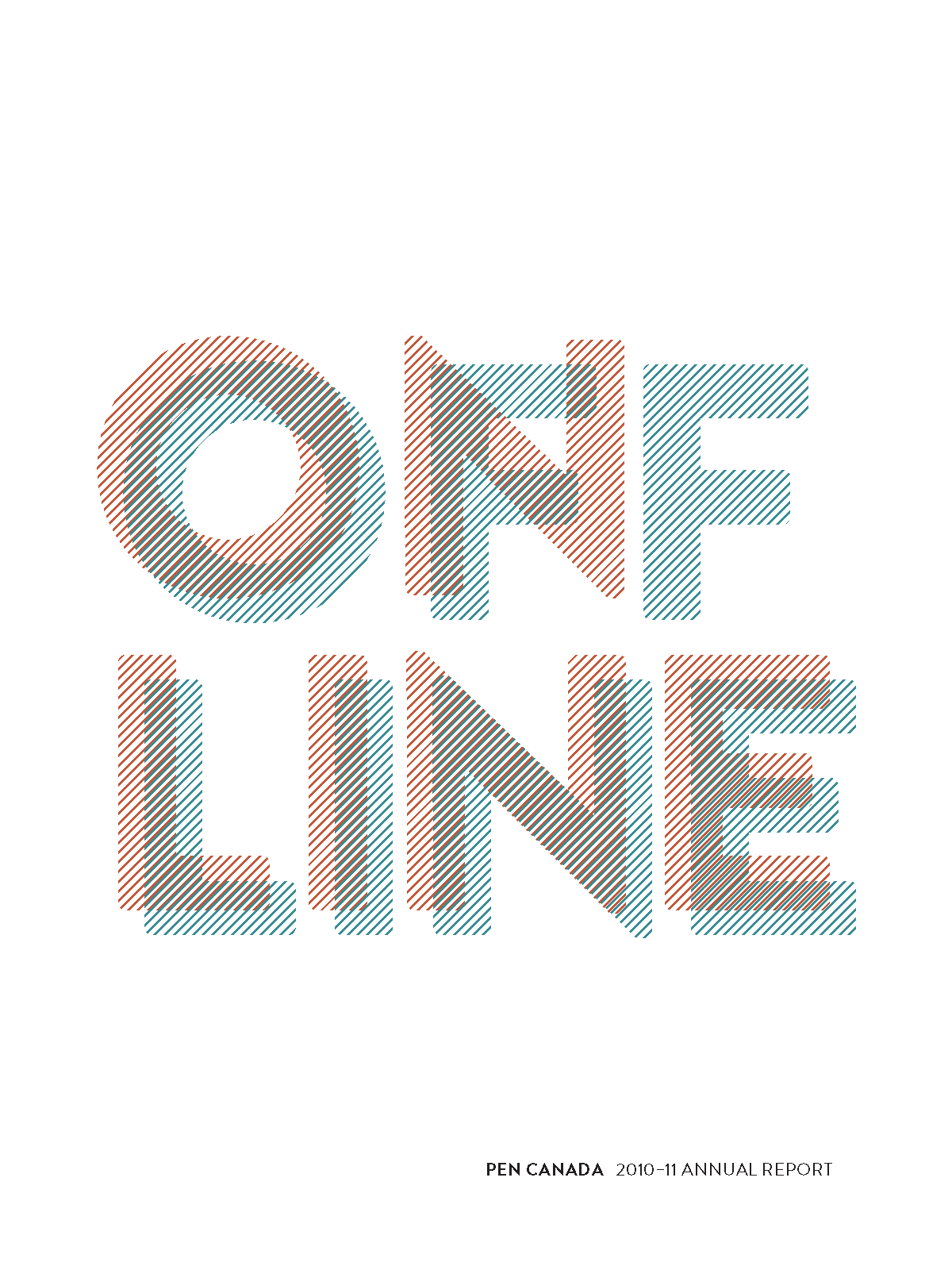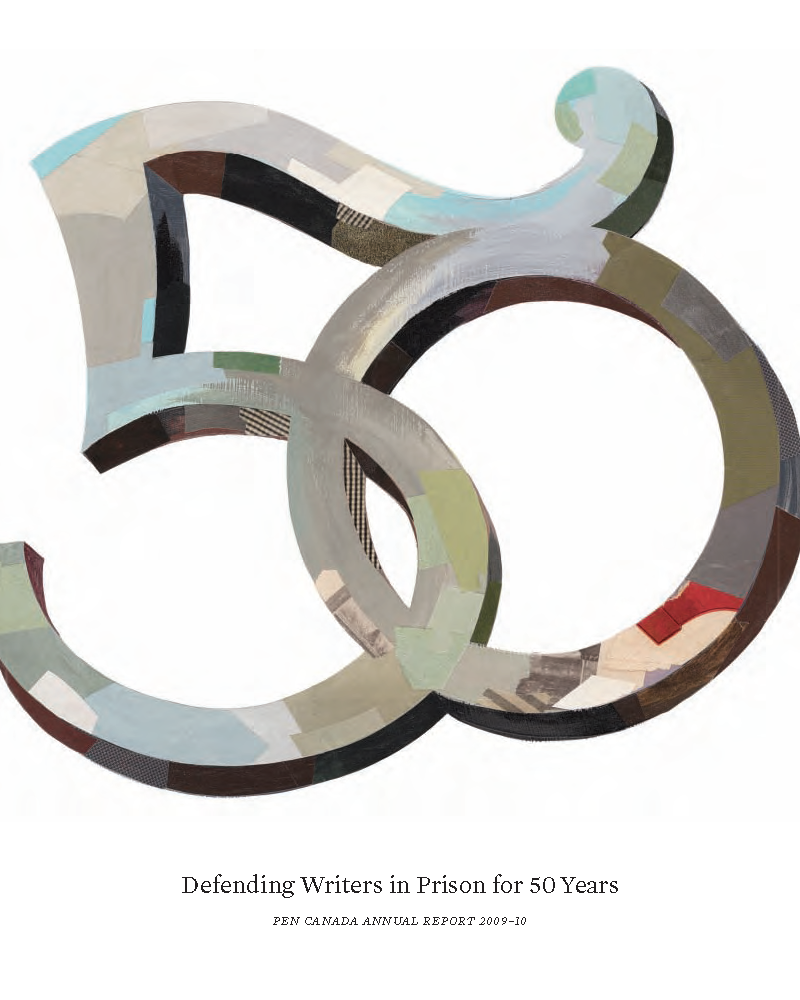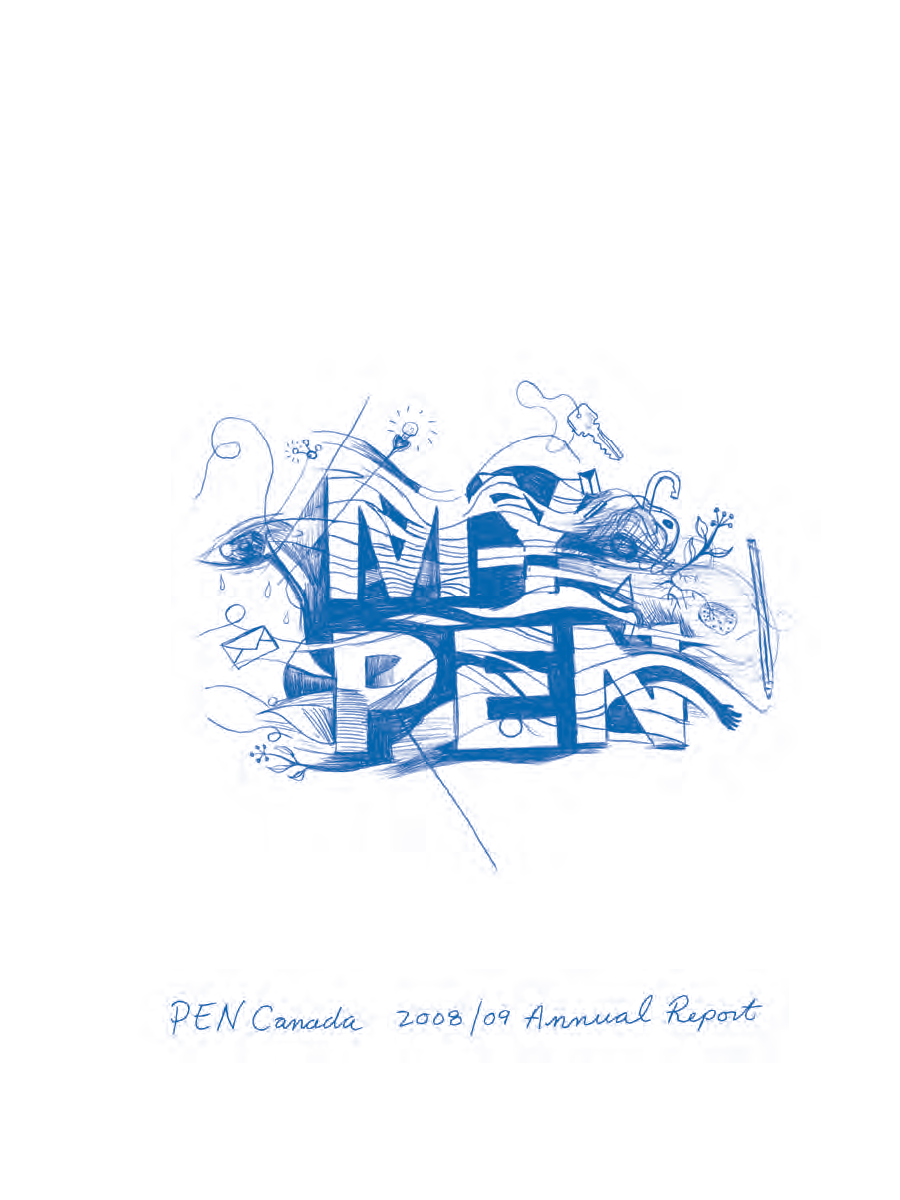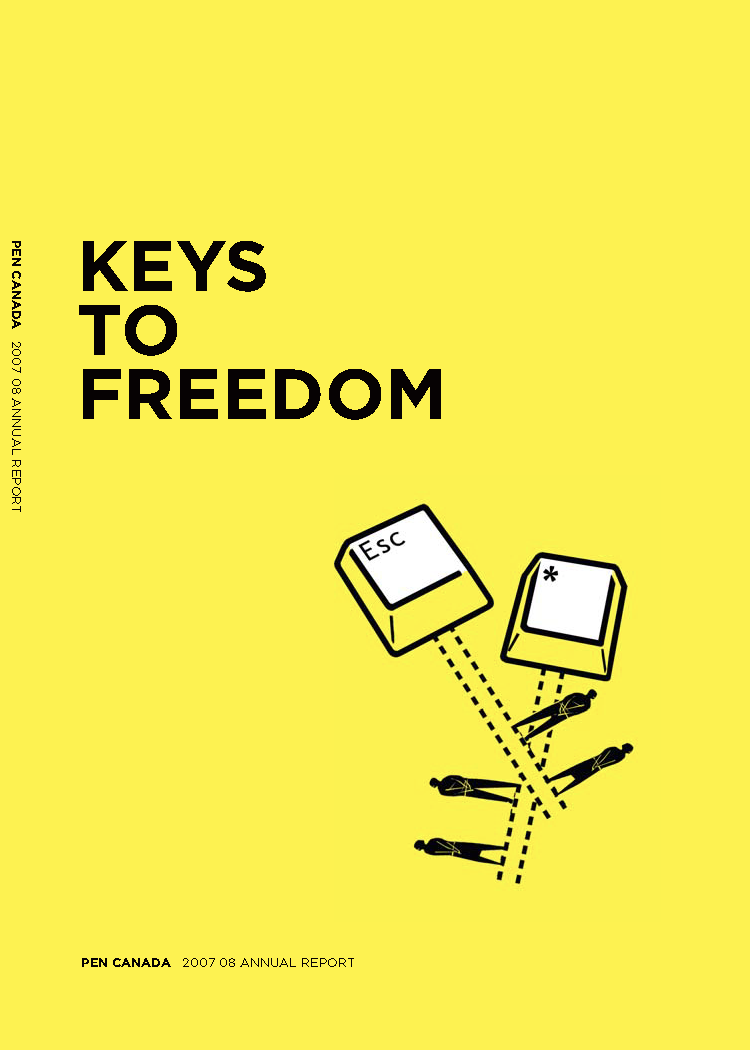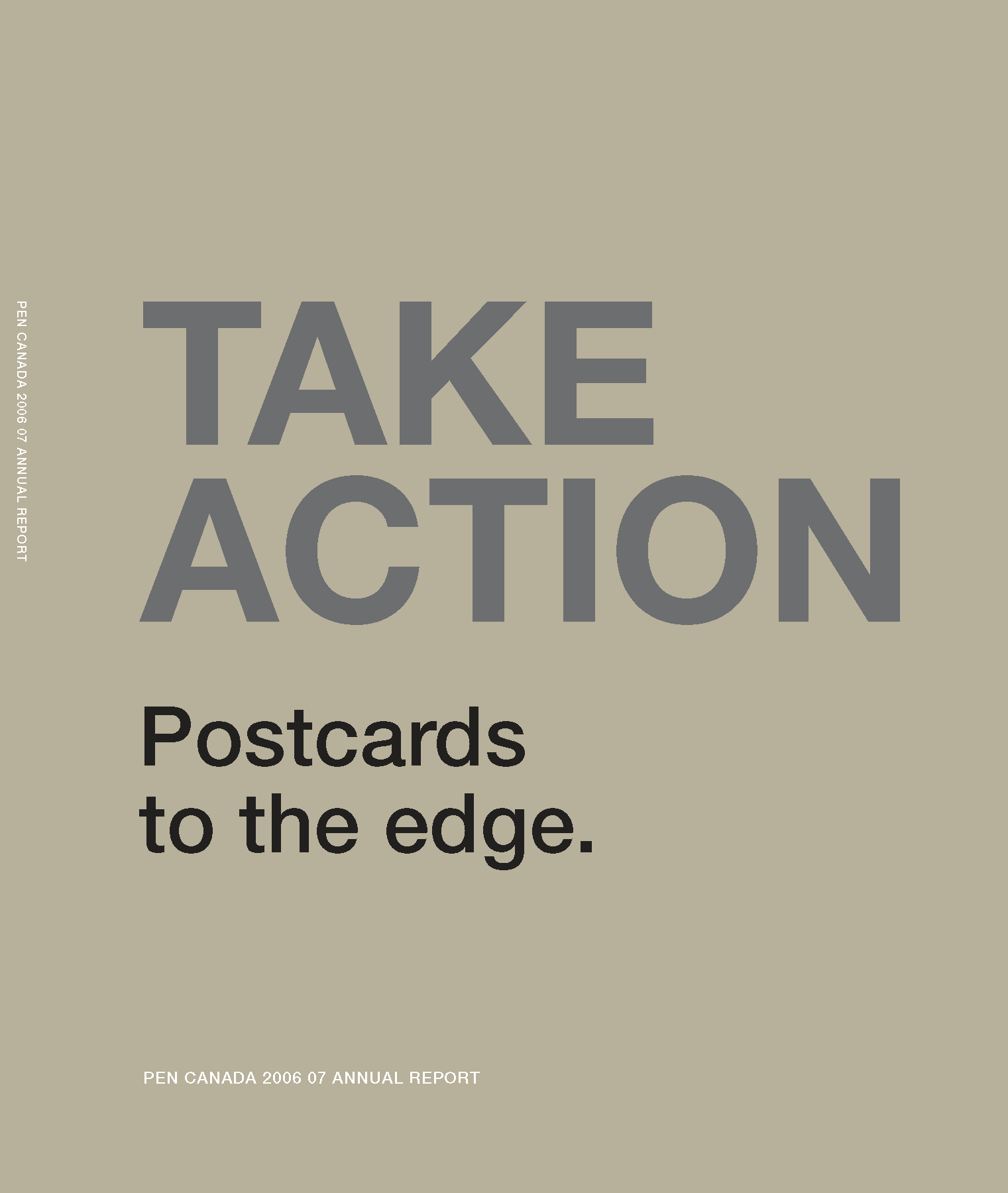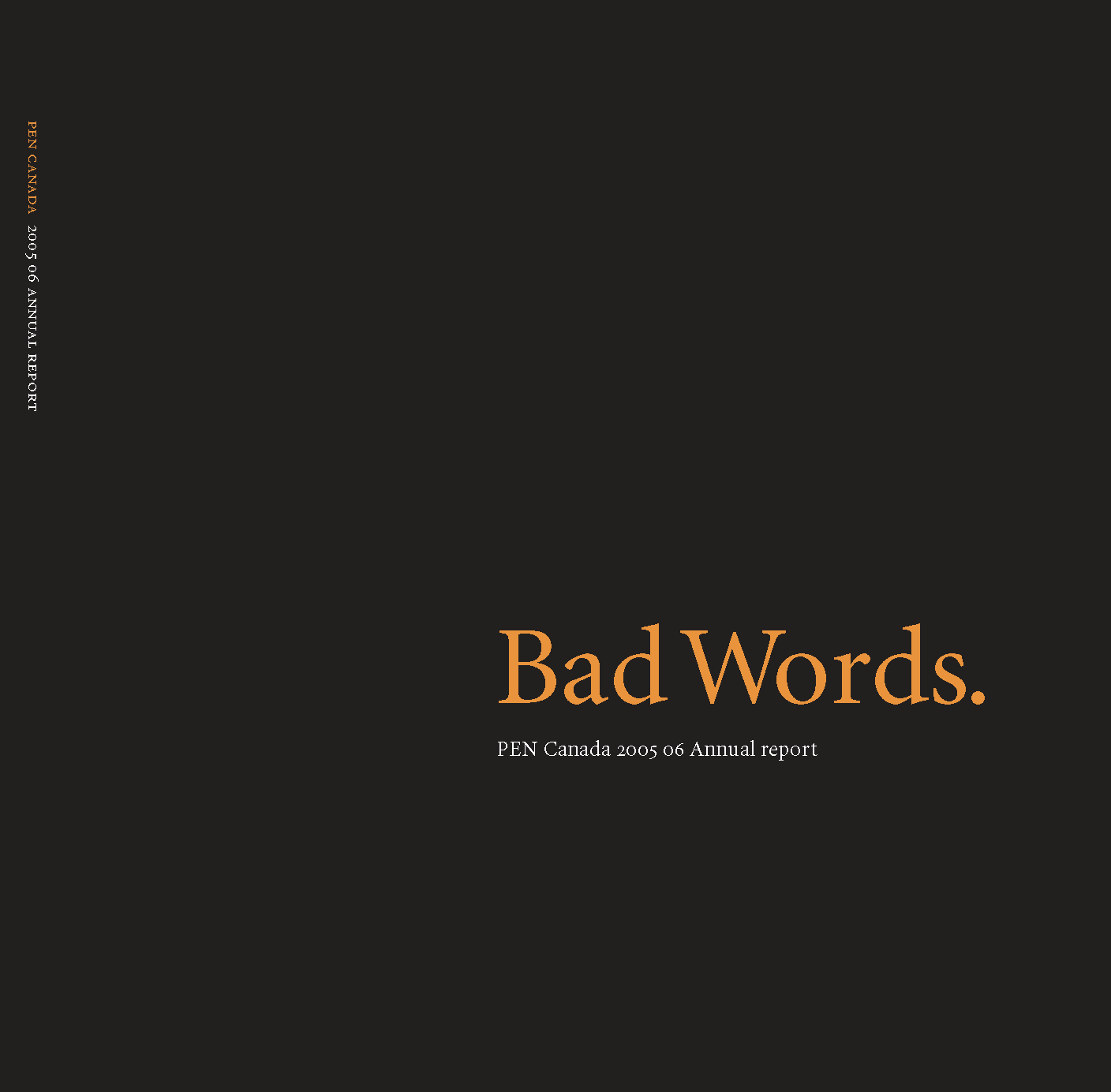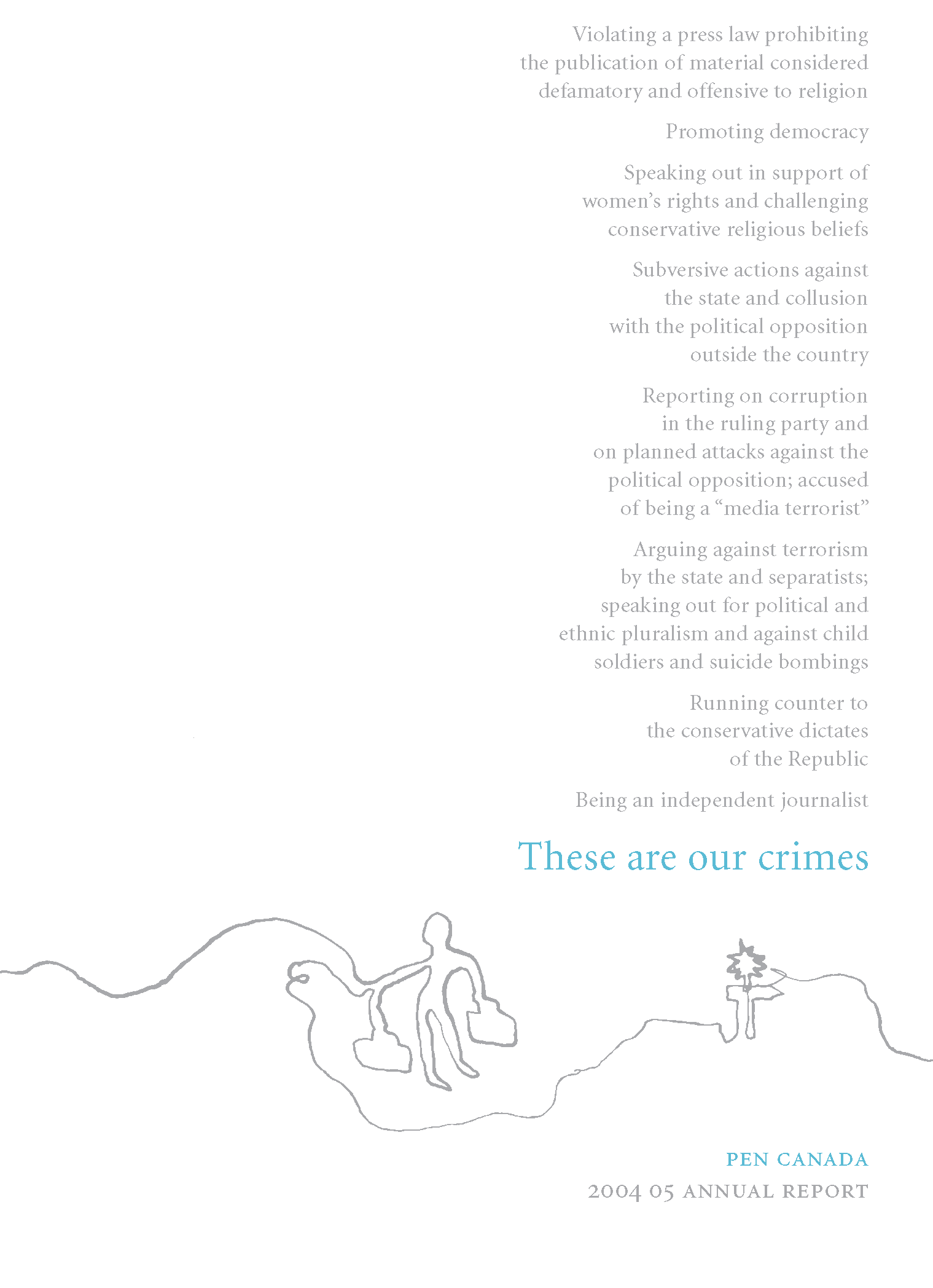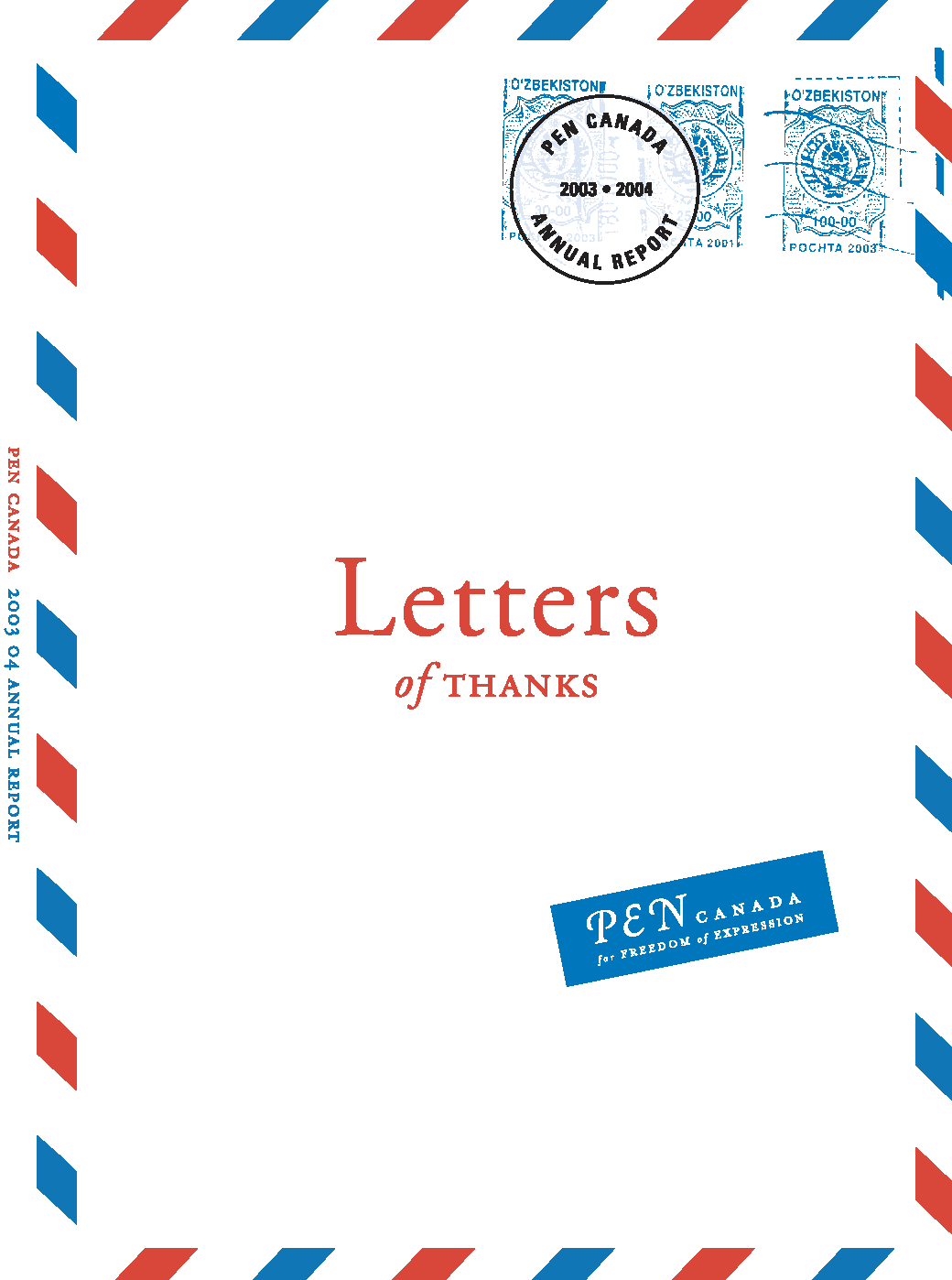Annual Reports
2025 Annual Report
Amidst growing authoritarianism around the world, this year’s report aims to connect writers across borders, with hope, and towards change through the PEN tradition of letter writing.
“Letters have always been a means to create connection, to reach beyond ourselves, particularly before the internet and phones existed,” report editor Eli Tareq El Bechelany-Lynch writes in their foreward. “For much of humanity, letter writing was the means for communicating with others at a distance. A letter asking about the well-being of the addressees wouldn’t be answered for weeks, sometimes months. Most of us have lost this waiting, this longing, as our technology has developed, but for some, like imprisoned writers, letter writing is still an important way of finding and maintaining connection with people on the outside.”
Contributors include Madeleine Thien, Mostafa Al-A’Sar and Maryam Shafipour.
Download PDF.
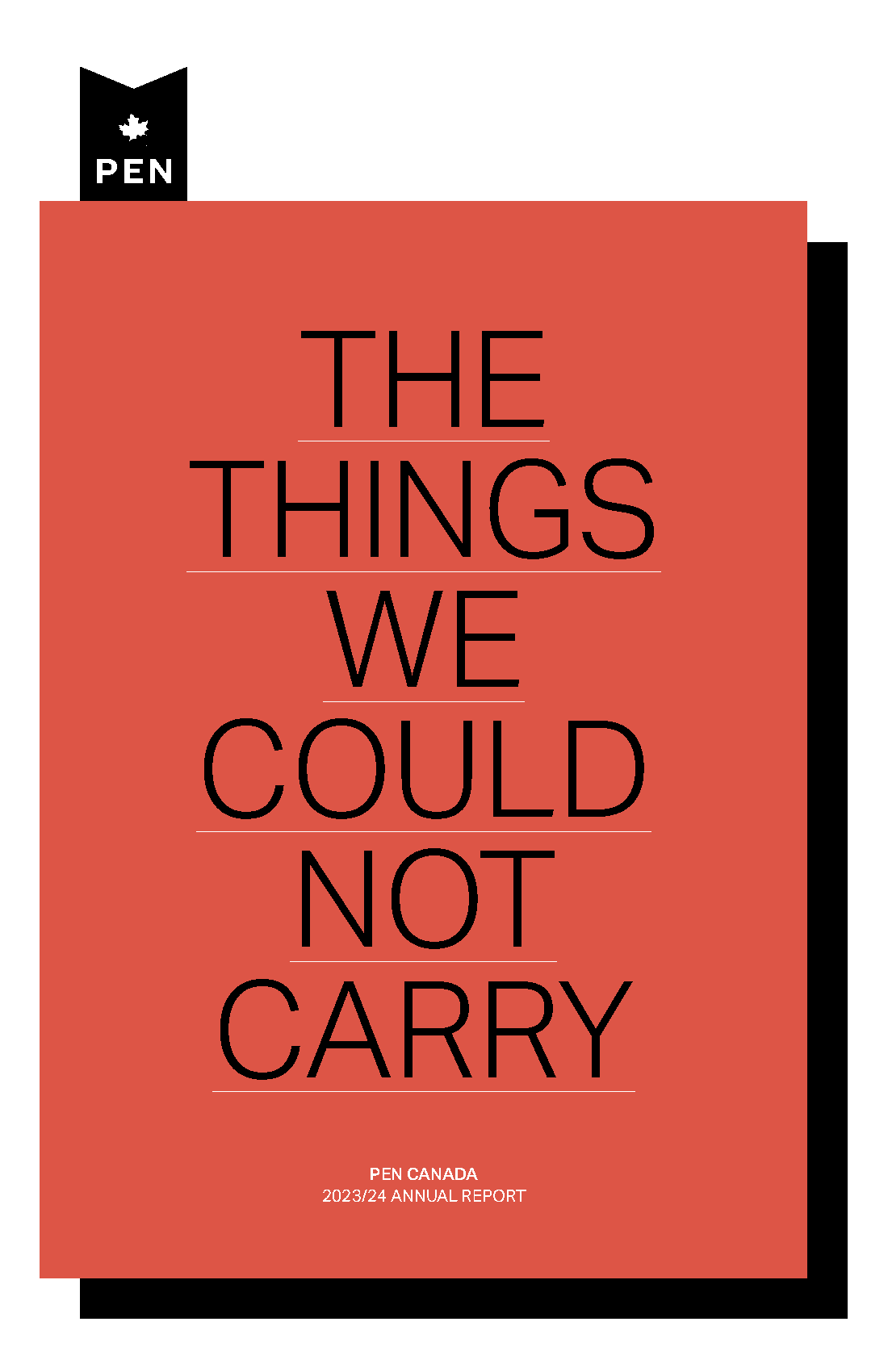
The 2023/2024 annual report focused on the cost of leaving one’s home. To bring perspective and lived experience, this year’s featured writers included Saeed Teebi, Luis Horacio Nájera, and Ésery Mondésir.
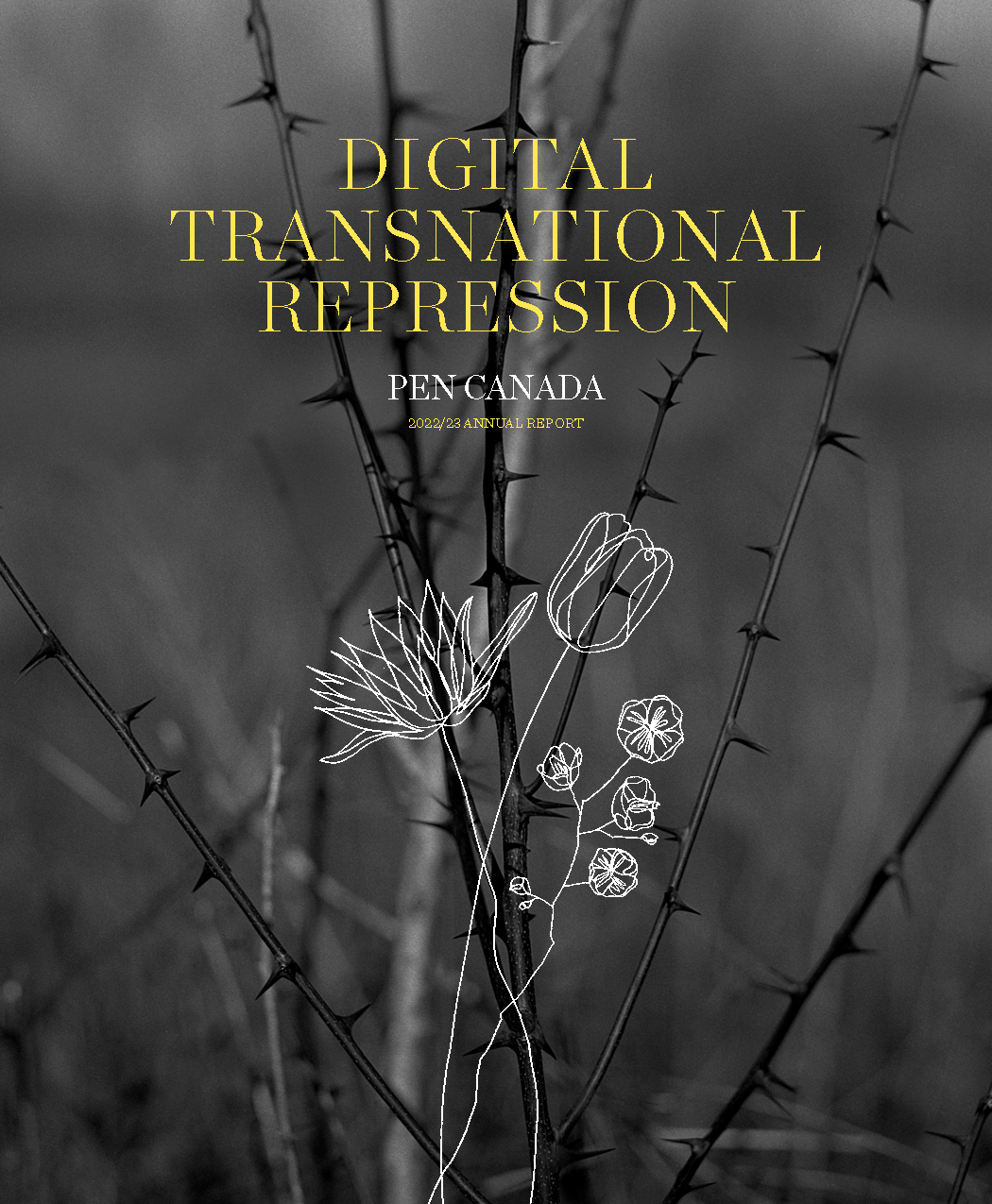
This year’s report focused on the growing threat of digital transnational repression by states like Iran, China, and Russia, Rwanda, Saudi Arabia, and Turkey. In response to the violent attack on Salman Rushdie in New York, PEN co-hosted a solidarity event titled “The Freedom to Write and to Read.” PEN also advocated for the case of Iranian blogger Hoda Karimi Sadr for resettlement, which was accepted by the Canadian government.
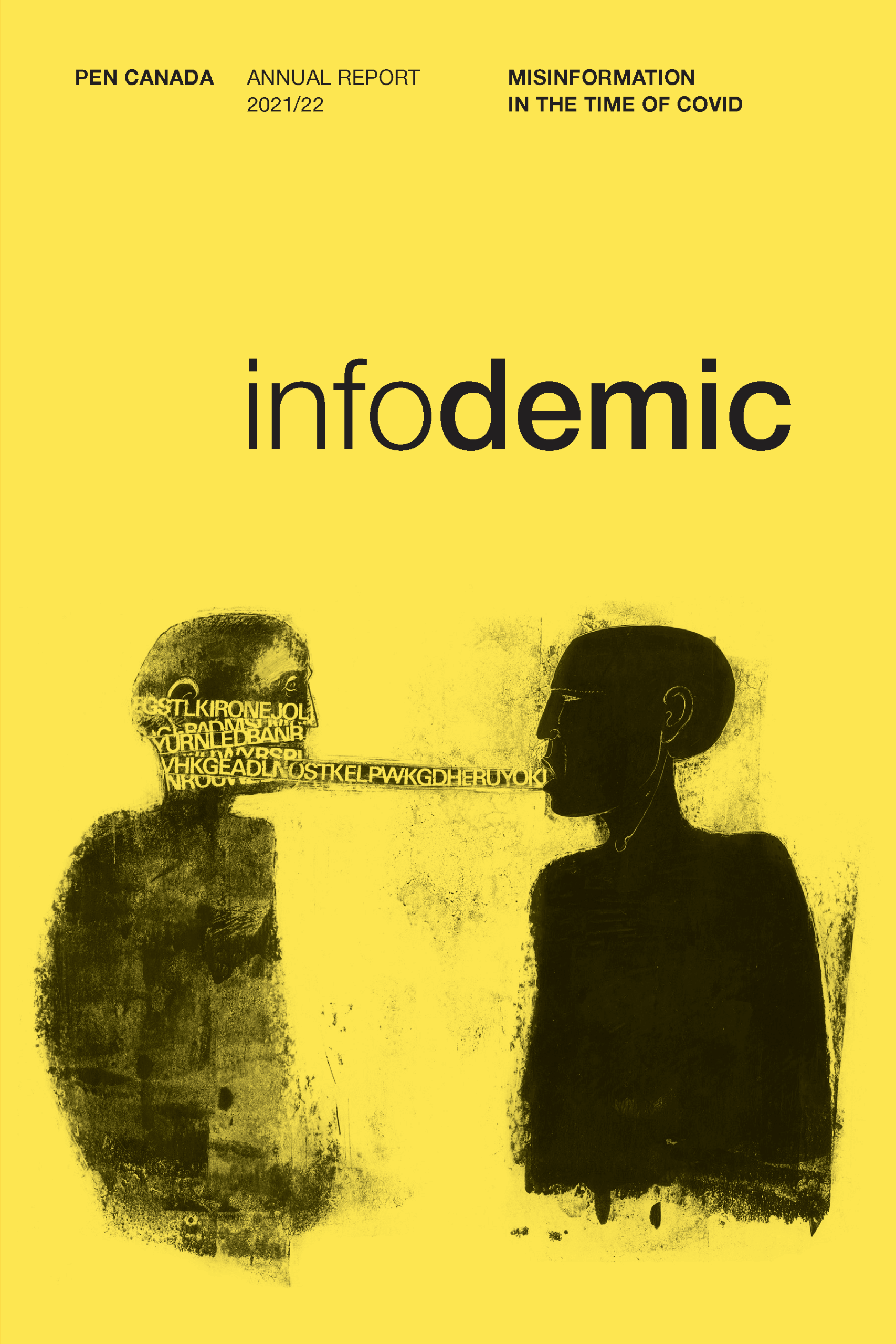
This year PEN advocated for Afghan women journalists after the fall of Kabul, urging the Canadian government to simplify refugee processes. PEN also held events spotlighting authoritarian repression and disinformation, including a panel on the Hong Kong democracy fighters and an online screening of Inside the Red Brick Wall. It also welcomed the release of Raif Badawi from prison in Saudi Arabia, who was part of PEN’s Writers in Peril program.
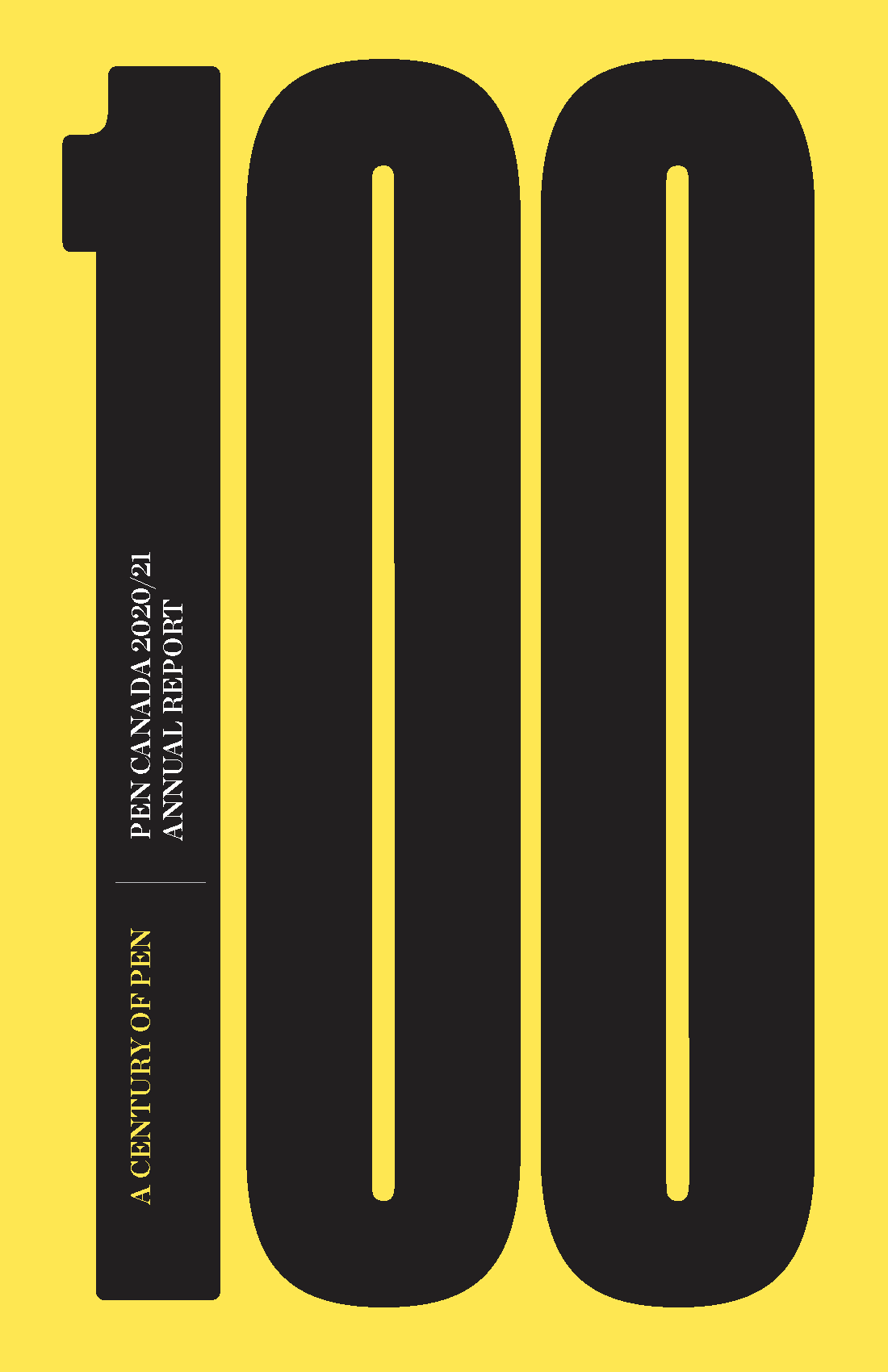
To mark PEN International’s 100th anniversary, Margaret Atwood and Omar El Akkad gave the inaugural Graeme Gibson Talk, which showcased the power of dystopian fiction. PEN Canada mourned the loss of Aaron Berhane, journalist and Chair of the Writers in Exile program, who died from COVID-19. PEN also won two major legal victories defending free expression including the Carbon Tax Sticker Ruling and the False Statement Provision.
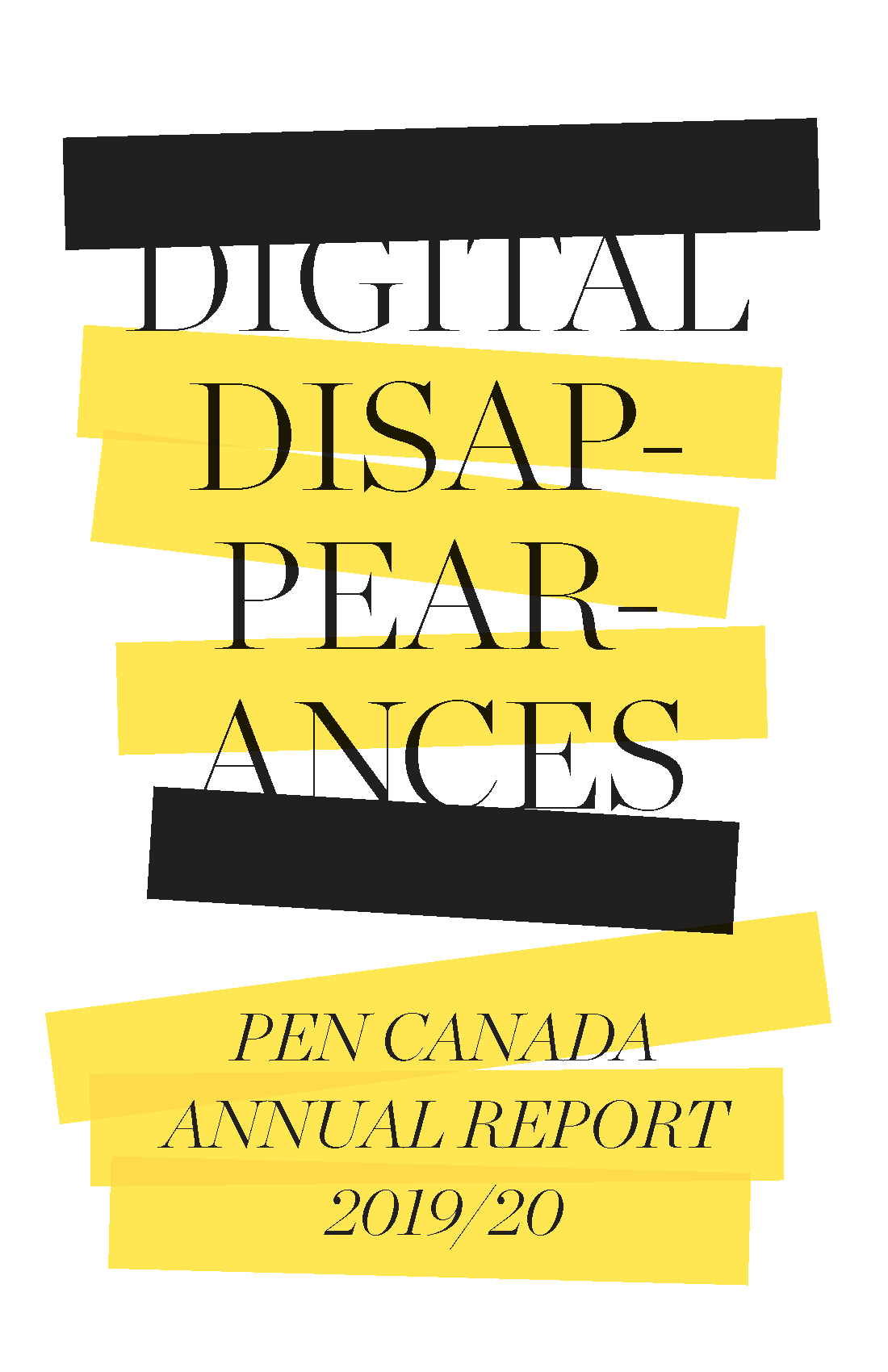
This year, PEN condemned state censorship and surveillance with the launch of No Friend But the Mountains, a prison narrative by Kurdish-Iranian journalist Behrouz Boochani. Additionally, PEN advocated for the release of Palestinian poet and honorary member Ashraf Fayadh, imprisoned in Saudi Arabia for “misguided and misguiding thoughts.” PEN also co-signed a national media statement condemning police repression at Wet’suwet’en.
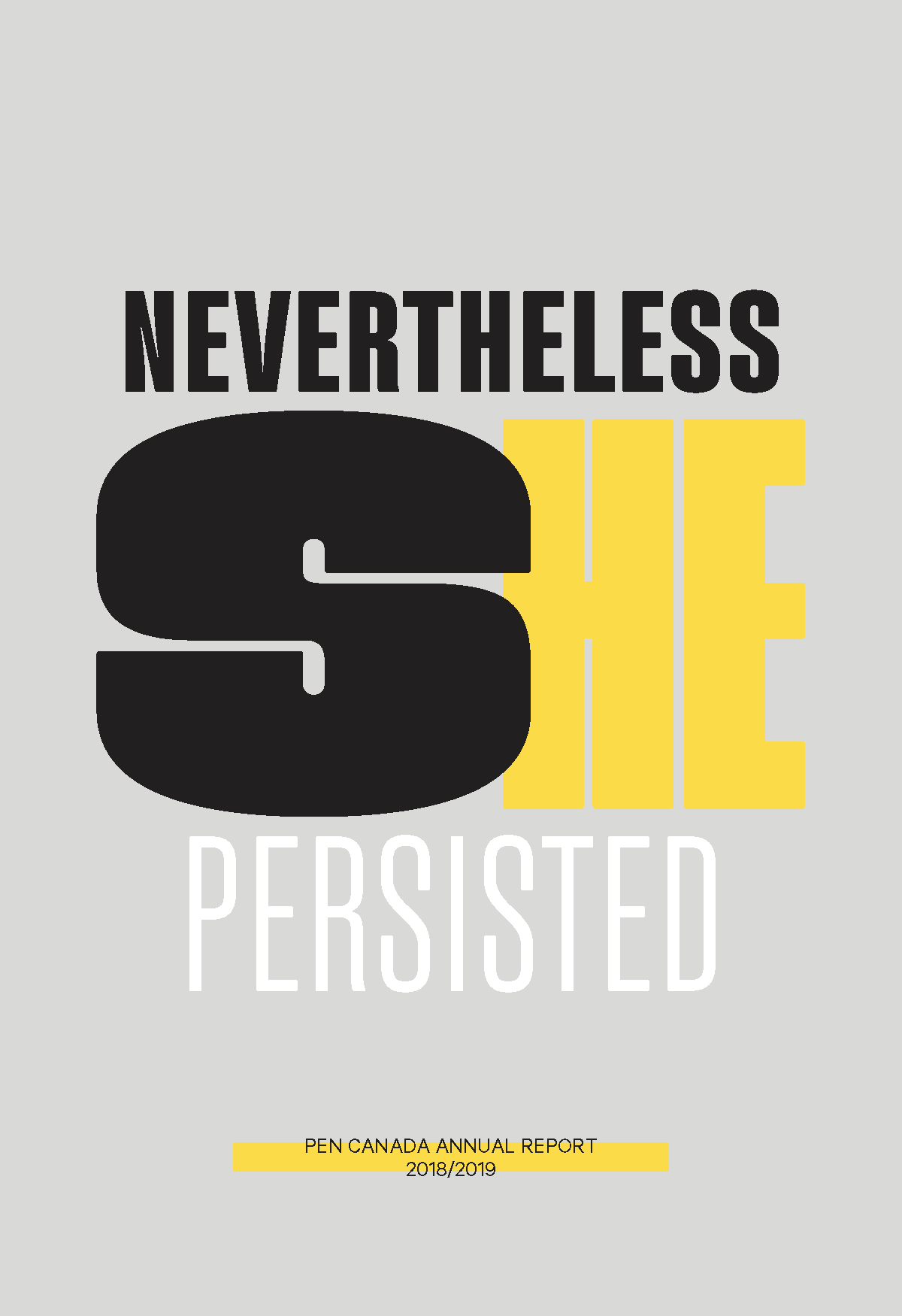
This year, PEN celebrated its first female president Jennifer Clement, who adopted the International Women’s Manifesto that centered on women writers under threat and the systemic forces that silence them. Outside the Russian consulate in Toronto, members held a literary protest demanding the release of imprisoned Ukrainian filmmaker Oleg Sentsov. At the Atwood-Gibson Gala, Rick Mercer joined Margaret Atwood to celebrate PEN’s legacy and the power of dissent.
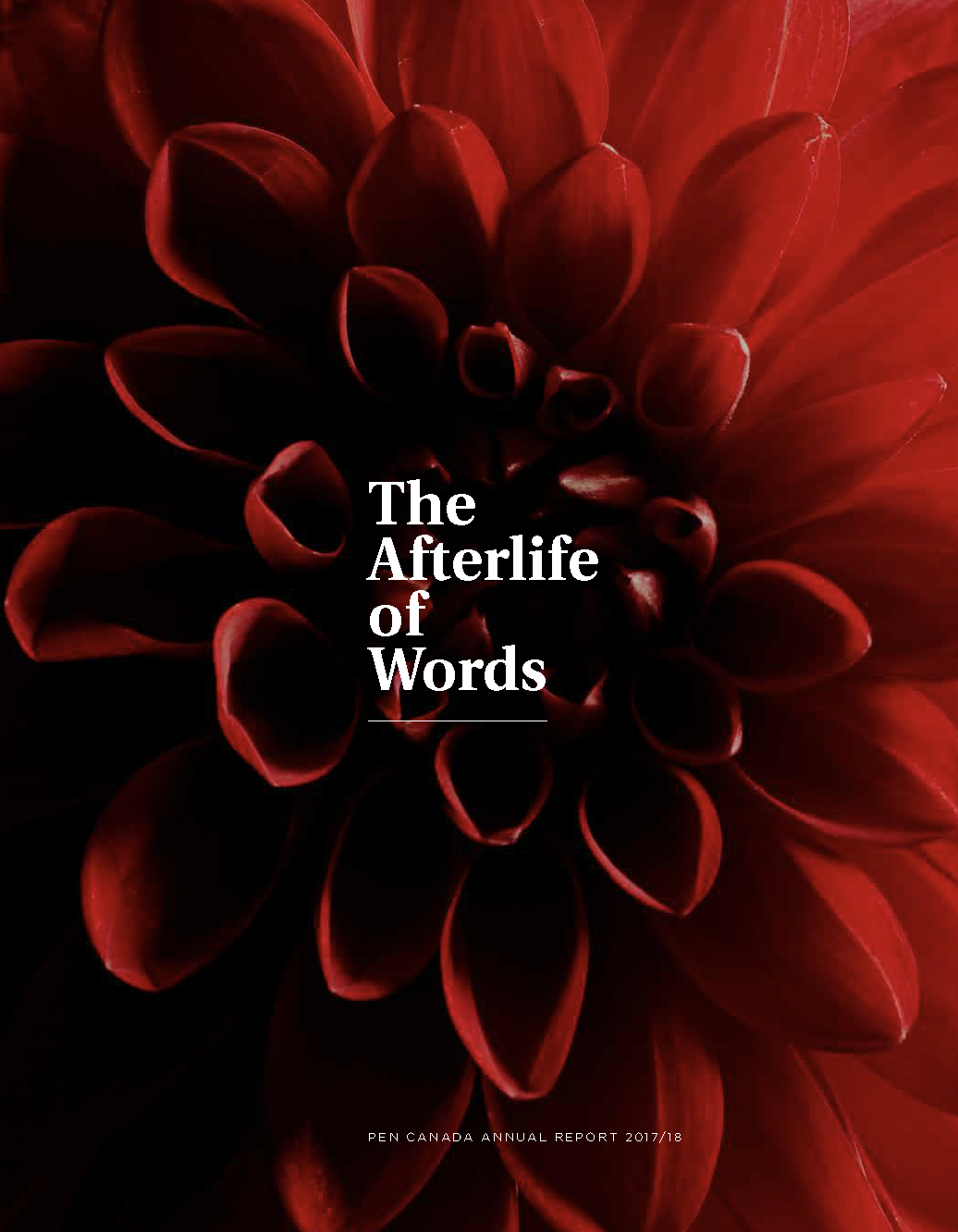
This year, PEN Canada expanded its global reach with a security training workshop for Indigenous women journalists in Guatemala and support for refugee seekers navigating the asylum process. Event highlights included a packed gala in conversation with Martin Amis, PEN International’s Congress in Lviv, Ukraine, and wide participation in Montreal’s Blue Metropolis Festival. The year reflected PEN’s commitment to protecting expression under threat, whether it be across borders or in Canadian courts.
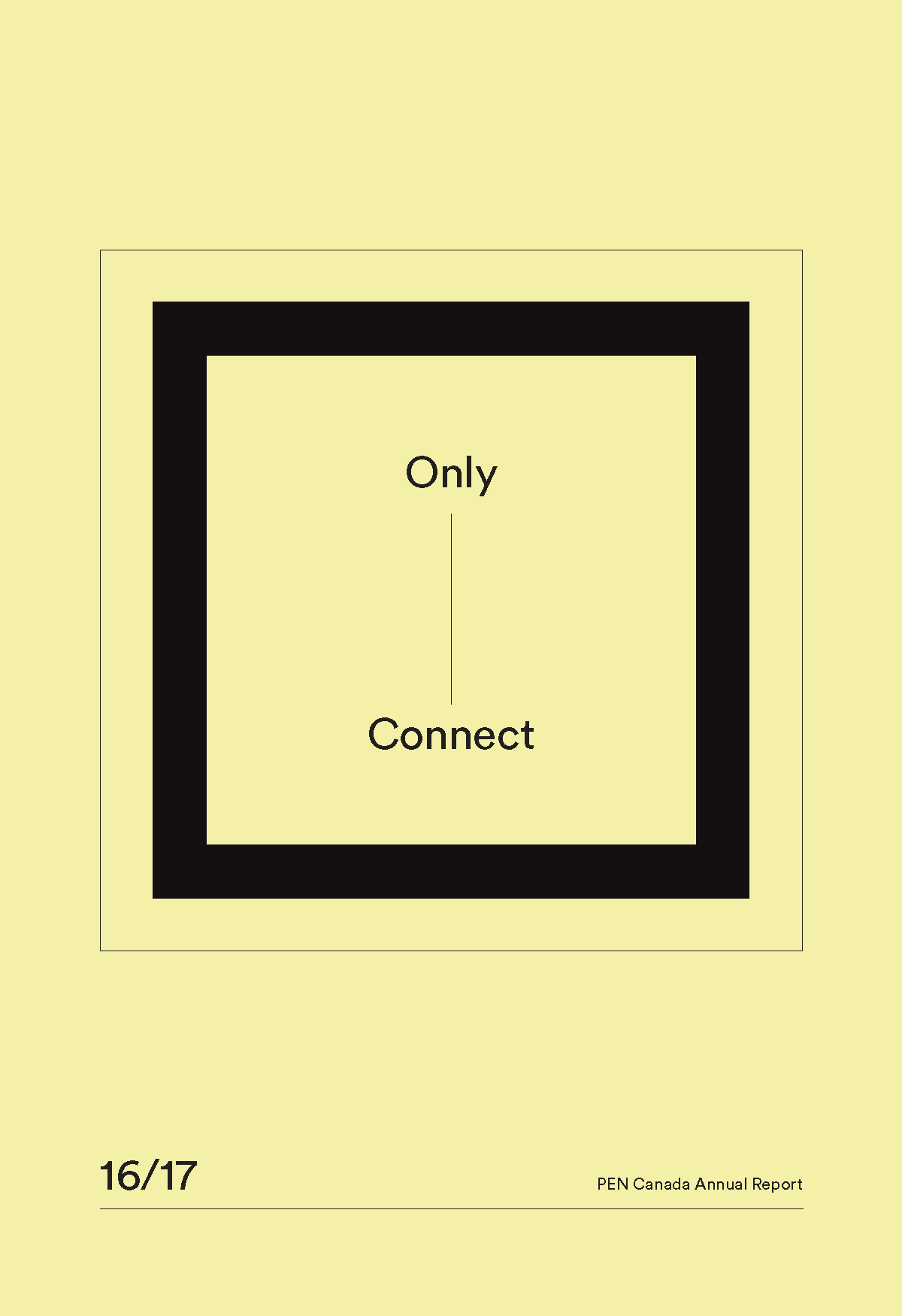
Taking inspiration from E.M. Forster, PEN focused on creating connections between Canadian readers and global writers in peril. PEN’s advocacy helped release Muhammad Bekjanov from prison and helped launched a report on freedom of expression in Guatemala. New initiatives like the ICORN City of Refuge in Surrey and meetings with Canadian ministries continued PEN’s support network for exiled writers.
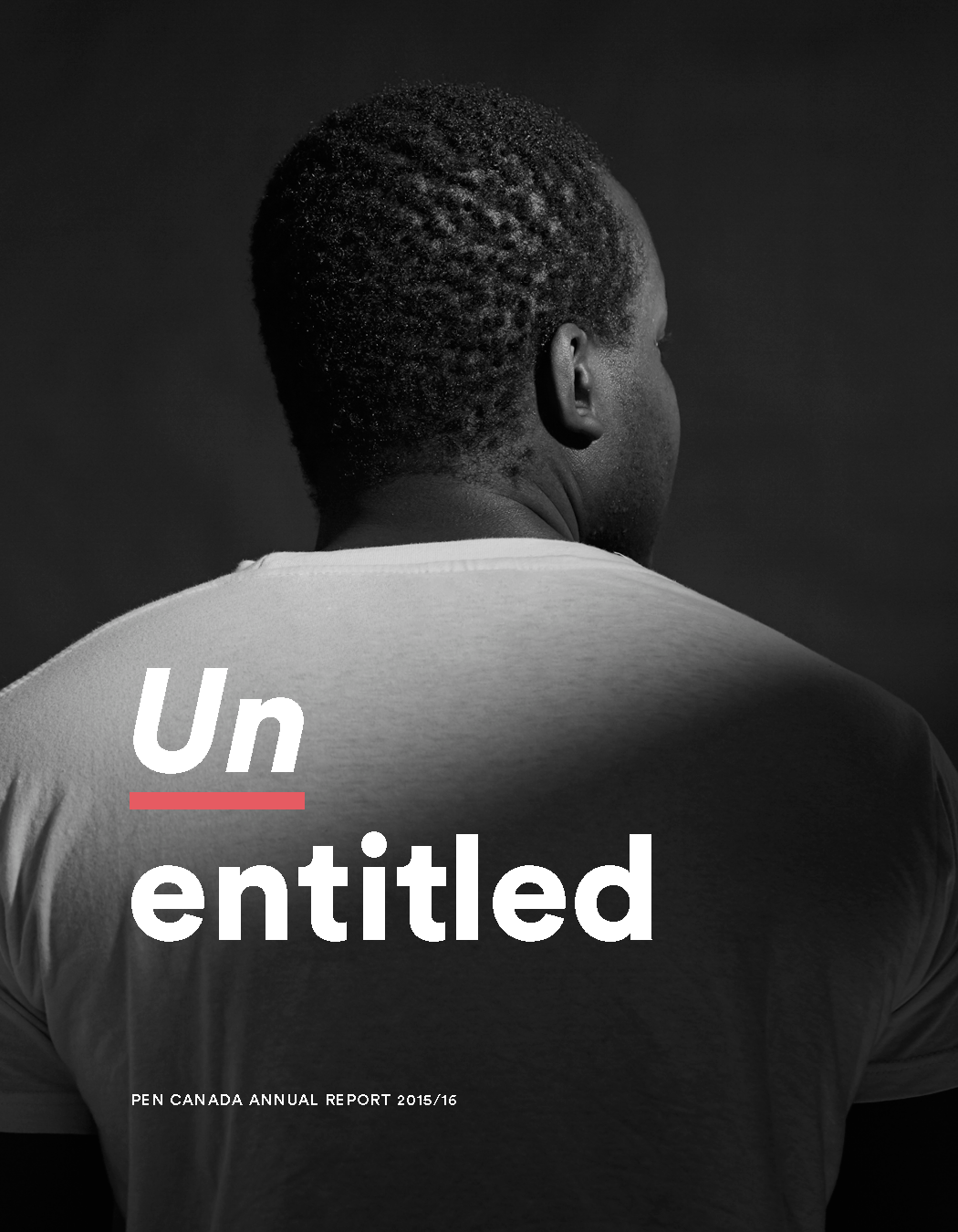
This year challenged the idea of who is “entitled” to speak and be heard, as PEN fought against government overreach and censorship. PEN’s advocacy helped secure safety for at-risk writers from Ethiopia and Honduras and pushed back on Bill C-51 and Quebec’s Bill 59. The inaugural Escribir Sin Miedo prize was awarded to Fred Alvarado, and new tools like “Know Your Rights” showcased PEN’s public impact.
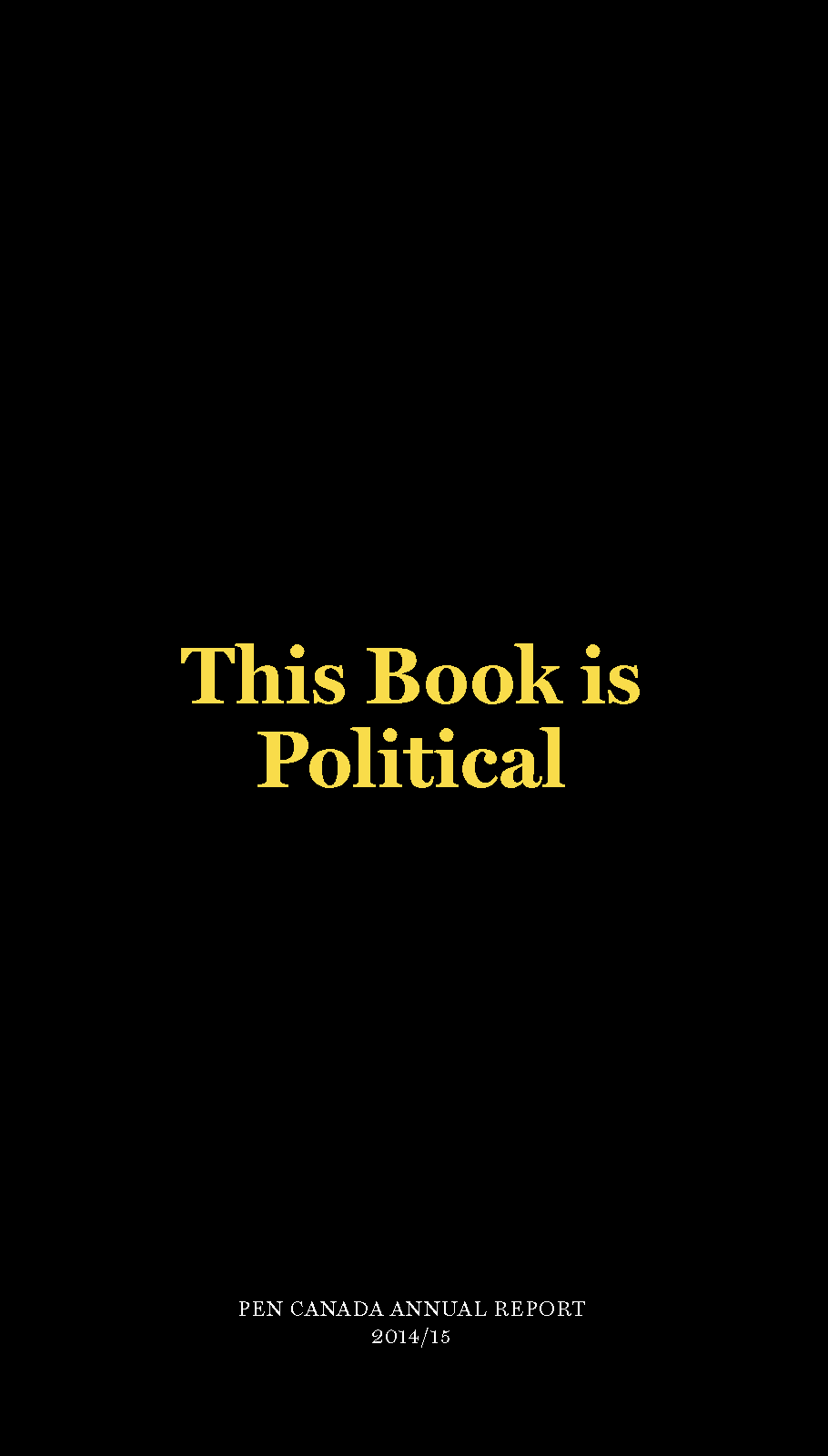
With a national board and new student PEN centres, PEN focused on Canada’s political climate, challenging CRA audits of charities and launching a Censorship Tracker. The inaugural Ken Filkow Award was established to honour exceptional contributions to freedom of expression. In Honduras, PEN helped found a new PEN centre in Tegucigalpa and initiated a journalism prize to address rising journalist murders.
Subscribe for updates about PEN Canada’s work to defend free expression.

